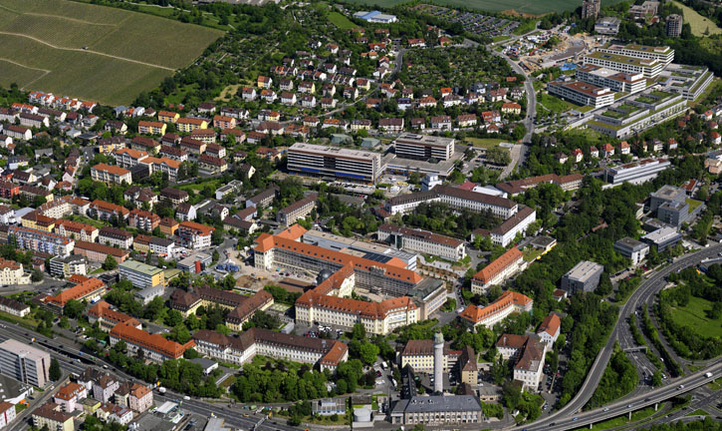Participating Institutes and Clinical Departments
Participating Institutes and Clinical Departments
The field of immunology is important for many clinical disciplines. Various clinics and institutes have set up immunological working groups. Within the Else-Kröner Research College for Translational Immunology this interdisciplinarity is expressed by the integration of the following 8 institutions. Through its association with a theoretical institute, the Research College is also accessible to representatives of clinical disciplines not mentioned here.
Ongoing projects of the participating working groups
Modern, individualized immunotherapy inevitably begins with the identification of target genes, which are analyzed at the Institute of Pathology, a reference center for lymph node pathology, using state-of-the-art sequencing techniques (Leukemia and Lymphoma Molecular Profiling Project, International Cancer Genome Consortium).
The proteins, which are of particular importance for cell functions and thus for the development, diagnosis and treatment of diseases, are characterized in the Rudolf Virchow Center using various methods of high-resolution microscopy and X-ray structure analysis.
In cooperation with the Department of Internal Medicine I it has been shown that auto-antibodies against β1/2-adrenergic receptors can contribute significantly to the pathogenesis of heart failure. The resulting clinical concepts will be further developed in the German Centre for Heart Failure (DZHI), which is affiliated to the Department of Internal Medicine I. The DZHI is a recently founded German Centre for Heart Failure.
The Department of Internal Medicine II focuses on innovative immunotherapies for haematological and solid tumours and has set up the Early Clinical Trial Unit (ECTU), which is unique in Germany. Together with the University Children's Hospital, it has established the Stem Cell Transplantation Centre, where new approaches in stem cell transplantation are evaluated.
Adoptive immunotherapies can benefit from a newly developed protocol at the Children's Hospital (in cooperation with Prof. Philip Greenberg, Seattle) for the efficient generation of tumour antigen-specific T cells under GMP conditions. Another focus of the Children's Hospital is on childhood brain tumors, which can be vaccinated with dendritic cells.
Immunological response is pursued in collaboration with the Institute of Virology and Immunobiology, where new concepts for the regulation of immune response via cell surface receptors are developed. This also includes the investigation of regulatory mechanisms in "unusual" T cell populations (γδ T cells and NK T cells).
The Department of Dermatology, Venerology and Allergology has investigated the tumor microenvironment as modulator and target structure of anti-tumor immune reactions in a clinical research group. Peptide-based vaccination studies against tumor stroma antigens have been successfully performed. In addition, the appointment of Prof. Goebeler will strengthen the field of allergology.
At the University Women's Hospital and Polyclinic, antibody-based therapies play a key role in breast cancer. The scientific focus is on the investigation of immunological tolerance mechanisms in tumors. The junior research group "tumor progression and immune escape" also develops clinically relevant strategies for the immunotherapeutic targeting of tumor stem cells. Based on miRNA profiles in peripheral blood lymphocytes, new diagnostic approaches have also been developed.
All participating clinics and institutes have immunocompetent in vivo models for the validation of immunotherapeutic approaches. Strategies for stem cell transplantation can be tested in different graft-versus-host models using in vivo imaging. As a consequence of the dramatic failure of the Phase I study with the CD28 superagonist TGN1412 developed in Würzburg, the Institute of Virology and Immunology has also developed in vitro test systems with human lymphocytes that set new safety standards for immunomodulatory interventions.







